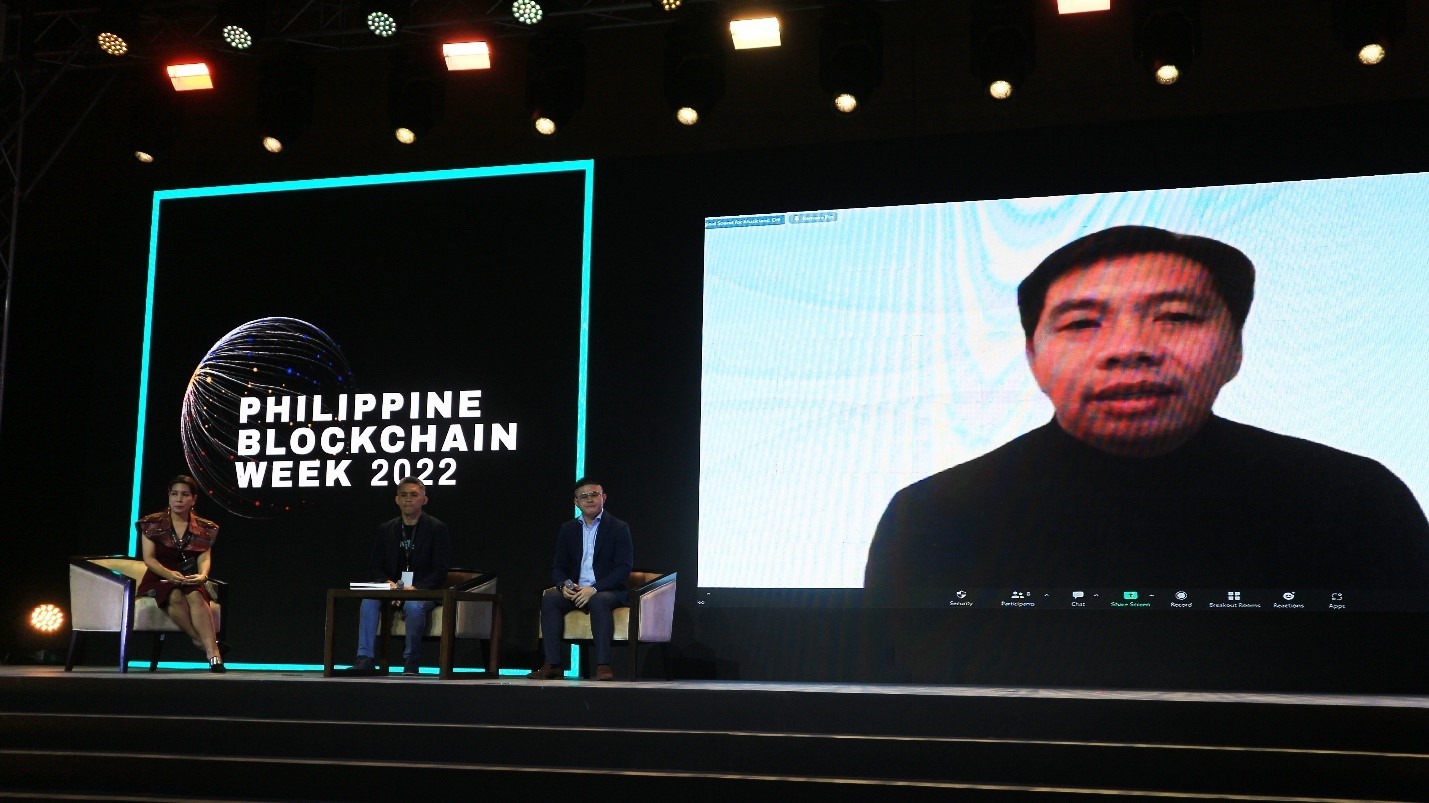|
Getting your Trinity Audio player ready...
|
The subject of regulating the digital asset industry has been consistently making headlines following the FTX fiasco earlier this month, sending shockwaves in every corner of the globe where virtual currencies are slowly making their mark on the financial market. And with the current developments in the space, the issue is showing no signs of dying anytime soon.
Key industry players in the Philippines, where 16.6% of citizens are digital asset holders, shared their takes on the controversial matter on the second day of the Philippine Blockchain Week at the Marriott Grand Ballroom, Newport World Resorts, Pasay City, on Wednesday, which was opened by Commissioner of the Philippine Securities and Exchange Commission (SEC) Kelvin Lee and Executive Vice President and Chief Innovation & Inclusion Officer at RCBC Lito Villanueva. The discussion on whether governments have the right to dip their hands in exchanges was considered one of the highlights of the high-level gathering, with the Philippine Blockchain Council dedicating at least an hour for the second panel to speak about the digital assets space.
Drawing cheers from the tech-induced crowd, panelists Nichel Gaba, Jay Villarante, Eprom Galang, and Charles David Inducil—the men behind the Philippines’ list of fully licensed and regulated exchanges—hopped onto the stage to meet moderator Mark Gorriceta, Managing Partner at Gorriceta Africa Cauton & Saavedra, who after giving panelists the floor to describe their businesses briefly, fired the first question of the day: Is this a viable time to introduce and promote blockchain-based asset classes?

Gorriceta was referring to the impacts of FTX’s implosion, including exchanges having to deal with people’s growing distrust of the industry as numerous firms suffer the same fate.
For Gaba, the founder of homegrown digital asset exchange PDAX, it remains viable to introduce new asset blocks to Filipinos, noting that the events that transpired over the weeks also have positive effects on the industry.
“This is also a catalyst for the industry to take steps in the right direction,” said Gaba, stressing that this is the right time for authorities to step in and regulate the sector.
“Because of what happened, more stringent regulations will be put in place, more along the lines of what we see in traditional markets where in the event of crisis we don’t go out and withdraw our money from banks, might be this is about trust built in through regulations over time,” he added.
Inducil of Direct Agent 5 Inc. and Surgepay agreed with Gaba, noting that the silver lining amid this chaos is that the digital asset industry will have more room for growth, while Coins.ph General Manager Galang said learnings from these mistakes would push technology forward.
Money Bees’ Villarante also chimed in, saying that enforcing regulations would strengthen the industry, adding that while everything seems grim nowadays, the asset class would continue to stay afloat.
“I’ve seen so many crypto winters. This has been like the fourth or fifth crypto winter, and every time I get asked (if) this is the right time (to introduce assets), it is always the right time,” he said.
As to what kind of regulation should be enforced, panelists all agreed that protocols that would ensure transparency are needed, although Villarante pointed out that the government would still have to implement different directives for varying institutions, depending on the risks associated with them and the nature of their businesses. He added that fortifying institutions’ proof of reserves would also help promote trust among consumers.
“Whether you’re running something that is fully automated or fully decentralized, or you’re running something centralized, put the consumers in front,” Villarante said.
For Inducil, traditional finance should be a source of learning among emerging financial institutions, including digital asset exchanges, pointing out that while there are several things frowned upon in the sector, it cannot be denied that these standards also have the “best ingredients” that exchanges and lending services can build upon.
But the digital asset sector is not the only industry that world leaders are looking to regulate.
A separate panel comprising Maya Bank President Angelo Madrid, Alibaba Cloud Country Head of the Philippines Allen Guo, and Chairman of the Board at UBX Philippines Henry Aguda, which was moderated by Philippine Blockchain Council Ida Tiongson, also touched on the topic of regulation in decentralized finance (DeFi).

Responding to questions from the audience on whether DeFi and emerging institutions should involve regulators in the process of innovation, Aguda said engagement between law enforcement agencies and industry players is vital to the success of an app or a service. He added that tech companies should practice responsible innovation as well.
“It (innovation) has to be arched into the regulators; otherwise, you know, you wouldn’t want to violate anything,” he noted, adding that collaborating with regulators enforces trust and becomes easier to introduce services to the market.
“The more they become digitally oriented, the easier it gets,” Aguda said, pointing out the need to let regulators get a good grasp of the industry.
For Madrid, emerging technologies should strike a balance between compliance and remaining progressive.
“At the end of the day, it’s actually making sure that you offer a financial product to the customer that they can trust. That they can trust again tomorrow, and they can trust again 10 years from now or years from now.”
Fearless forecast
Both panels agreed that issues plaguing the digital assets and DeFi industry would, at some point in time, be put to rest, and the struggling sectors would live on.
Moderators Gorriceta and Tiongson then proceeded to ask the future of the two industries, with Gaba saying that, for the digital asset sector, the next two years will test its resiliency as there will likely be far fewer exchanges because of three things—regulatory requirements, tough capital market, and the slowing down of exchange activities.
Gaba added that there is a huge chance that there will be fewer players in the space—a prediction he said would benefit the industry as this would minimize failures in the sector.
Villarante, for his part, believes BTC will remain the top ‘crypto’ in the market, while there will likely be a blockchain or Web3 version of popular platforms like Facebook.
In the DeFi space, Madrid visualizes a more efficient mode of digital transaction with the help of blockchain technology, which will be people’s core foundation of trust when it comes to innovation. Building on this answer, Guo pictured seamless cross-border travel in the next three years as more people make use of digital wallets.
To cap it off, panelists once again urged local industry players to collaborate with the national government and regulators in capitalizing on the unique asset and DeFi market of the Philippines.
Watch: Dito CME’s Donald Lim on CoinGeek Backstage

 02-18-2026
02-18-2026 




